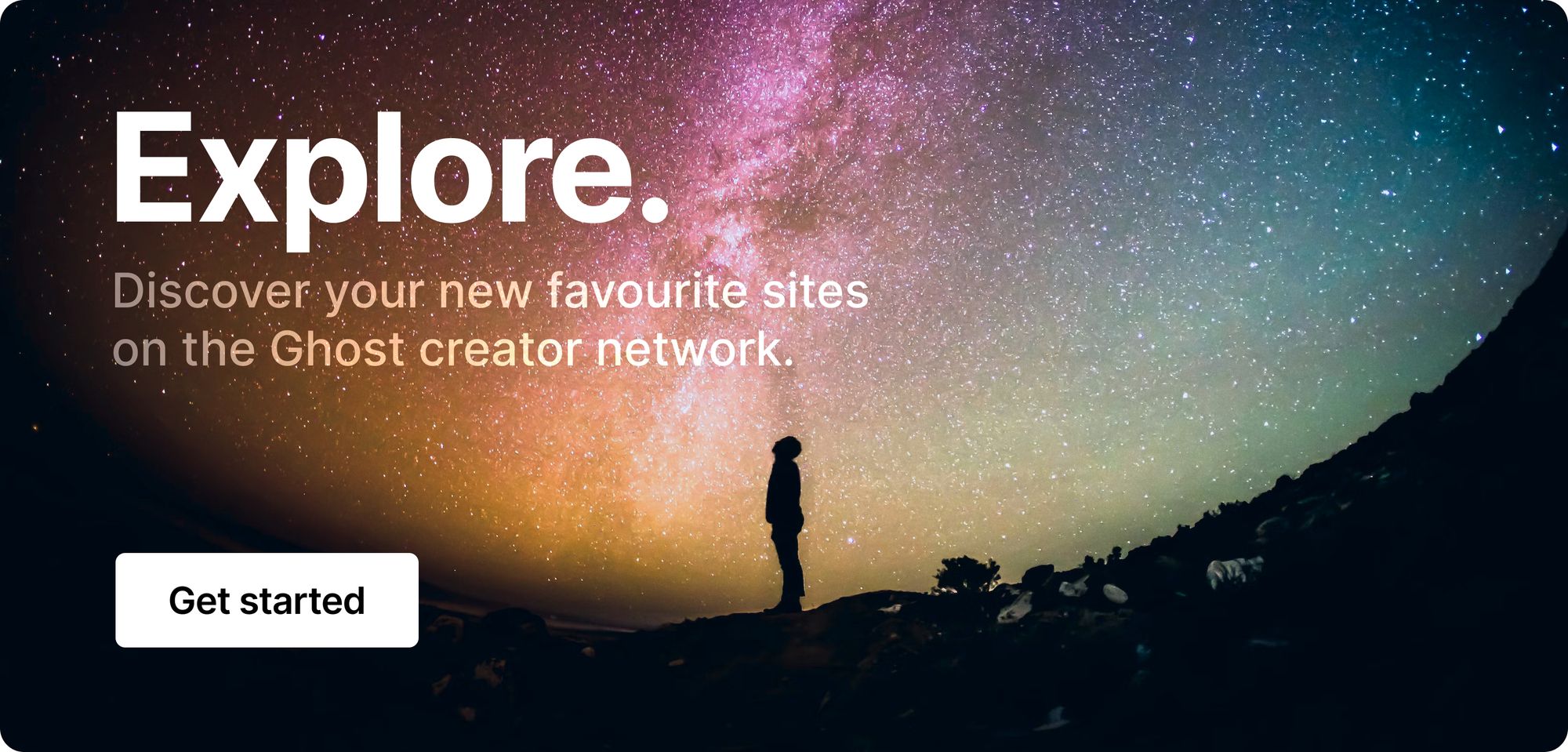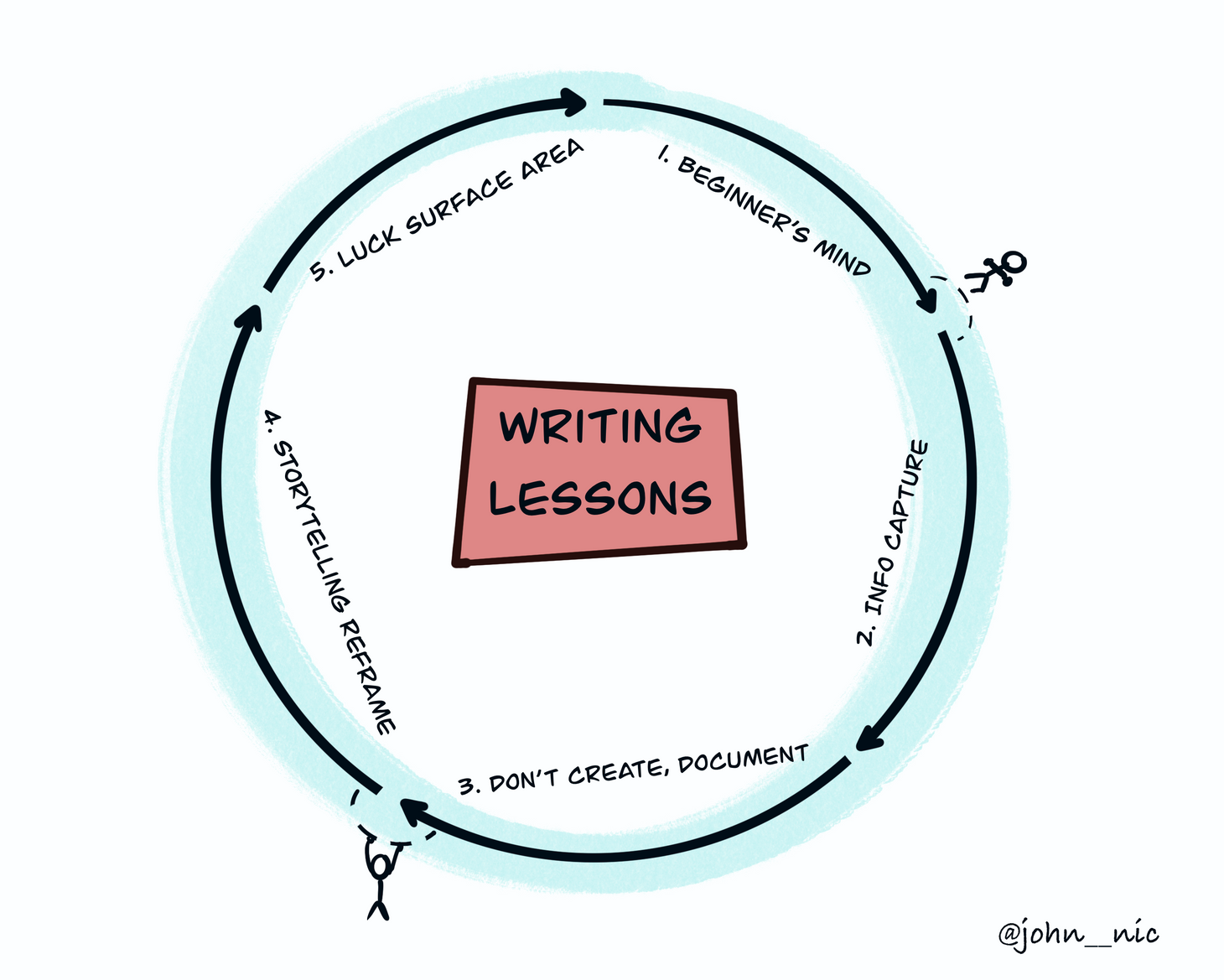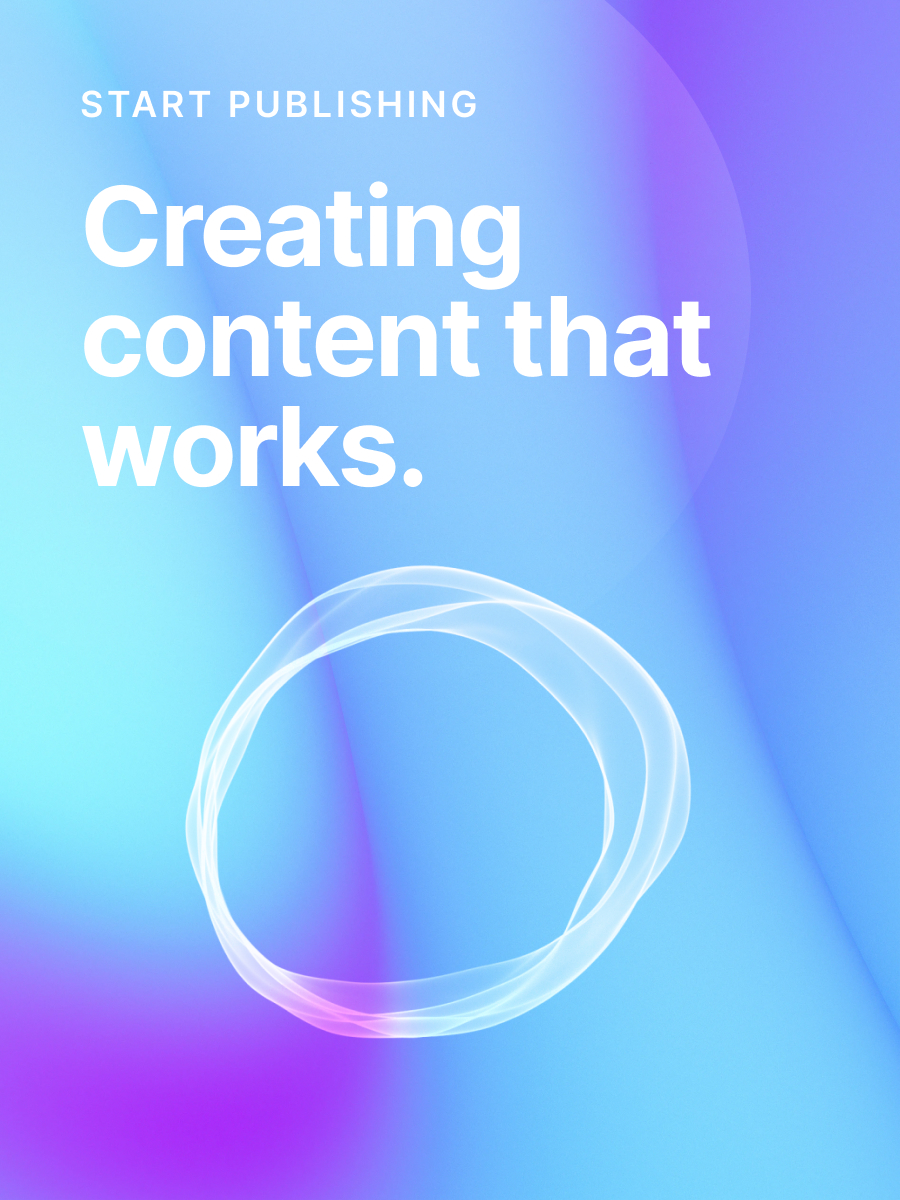📚 Make your stories shine
Welcome back, everyone! Before we get into your regularly scheduled stories, allow us a brief moment to celebrate (🥳) the launch of the New Ghost editor (beta) — now with image editing, post history and revisions, and a brand new Chrome extension to help you bookmark content from around the web (we use it for this very newsletter). Check it out ✨📝

💬 In this week's issue:
- Marketing. Steal this simple but effective strategy from Apple.
- The big reveal. Actually, the big 3 reveals, and why your stories need them.
- Calmer writing. Break down the obstacles in your writing process with these tips.
Was this email forwarded to you? Subscribe here!
What you can learn from the Apple marketing philosophy

Did you know that the marketing philosophy Apple use today originated in 1977? Sometimes the most successful strategies are timeless! As Daniel Murray writes, this marketing philosophy is still very applicable today — so here's what we can learn from it.
The fundamentals are pretty simple:
- Know your audience deeply. Better than anyone else.
- Focus on your top priorities. No distractions.
- Brand is everything. Avoid quick wins at the expense of your brand.
You don't have a 2nd chance to make a 1st impression. That doesn't mean overproduce everything you do. It means never against your brand ethos, not for a second.
Daniel shares some tips to help you hone in on each of these philosophies:
- Use empathy. Put yourself in your customers' shoes. When you truly understand their needs your marketing will shine.
- Find focus. Avoid shiny objects and invest your time, energy, and resources in a small set of priorities. Be ruthless.
- Remember the details. People will judge a book by its cover, so make sure your "cover" is good. Details matter when it comes to maintaining a strong brand and making a good first impression.
Interesting stories & ideas 📚
- The mind-shifting relationship between iteration and innovation
- Get controversial and leverage your spiky point of view 🌵
- How to have more effective meetings
- Why you should avoid using .99 for annual plans
- How to use a content matrix to come up with new article ideas
Why every story needs 3 truths

Ann Handley shares in a recent newsletter issue that every story should reveal three truths, which can be summarised as:
- Reveal the writer to the reader: Help the reader understand the writer.
- Reveal the reader to the reader: Help the reader see themselves.
- Reveal an idea: Help deliver an a-ha moment.
When a story fails to balance these reveals, it can fall flat or feel inauthentic, preventing a partnership between the writer and reader from developing.
Things that can cause a lack of balance include making it all about you/your business, overwriting, over-explaining, or lecturing.
But this doesn't mean you can't tell your story. Here's a framework to think about that will help you keep the 3 reveals in balance and help your stories shine:
- Tell your authentic story (revealing the writer)
- Tell this story in a way that your audience can relate to deeply (revealing the reader)
- Help readers understand something new (the a-ha moment)

Lessons for beginner writers

Feeling like a writing n00b? Not sure how to start, where to go, or how to cope with existential dread? 🫠 Fret not! According to John Nicholas, being an amateur can actually be an asset.
Do I see myself as an expert writer? Not by any means. I only started writing online 18 months ago. I still have a lot to learn. I still have bigger dreams for my writing journey. Funnily enough, my relative inexperience is an advantage. Especially as a teacher. — John Nicholas

If getting started on your writing journey is feeling a bit chaotic, John's been able to narrow down a calmer path into five simple lessons:
- Lower your expectations. You're not perfect, your writing's not perfect, and that's okay!
- Create a formidable note-taking system to define what's important to you.
- You don't have to be creative to start writing. Document what you're already doing naturally and go from there.
- Examine your ideas and stories from multiple angles to help turn your obstacles into openings.
- Being good at writing is only half the work, the other half is promoting yourself to the world around you.
Does practice really make perfect? Not really, and that's the beauty of it. Writing will never be a perfect art form, and that's what makes creating so special. It's raw, it's organic, and it's tough, so don't be so hard on yourself when trying to accomplish your writing dreams. One person's cringe is another person's inspiration. 🥰
Curator's pick

Enjoy this newsletter?
Forward to a friend, sharing is caring.
Anything else? Hit reply to send us feedback or say hello. We don't bite!
Join an invite-only community! Connect with like-minded people who create content professionally — apply here.







